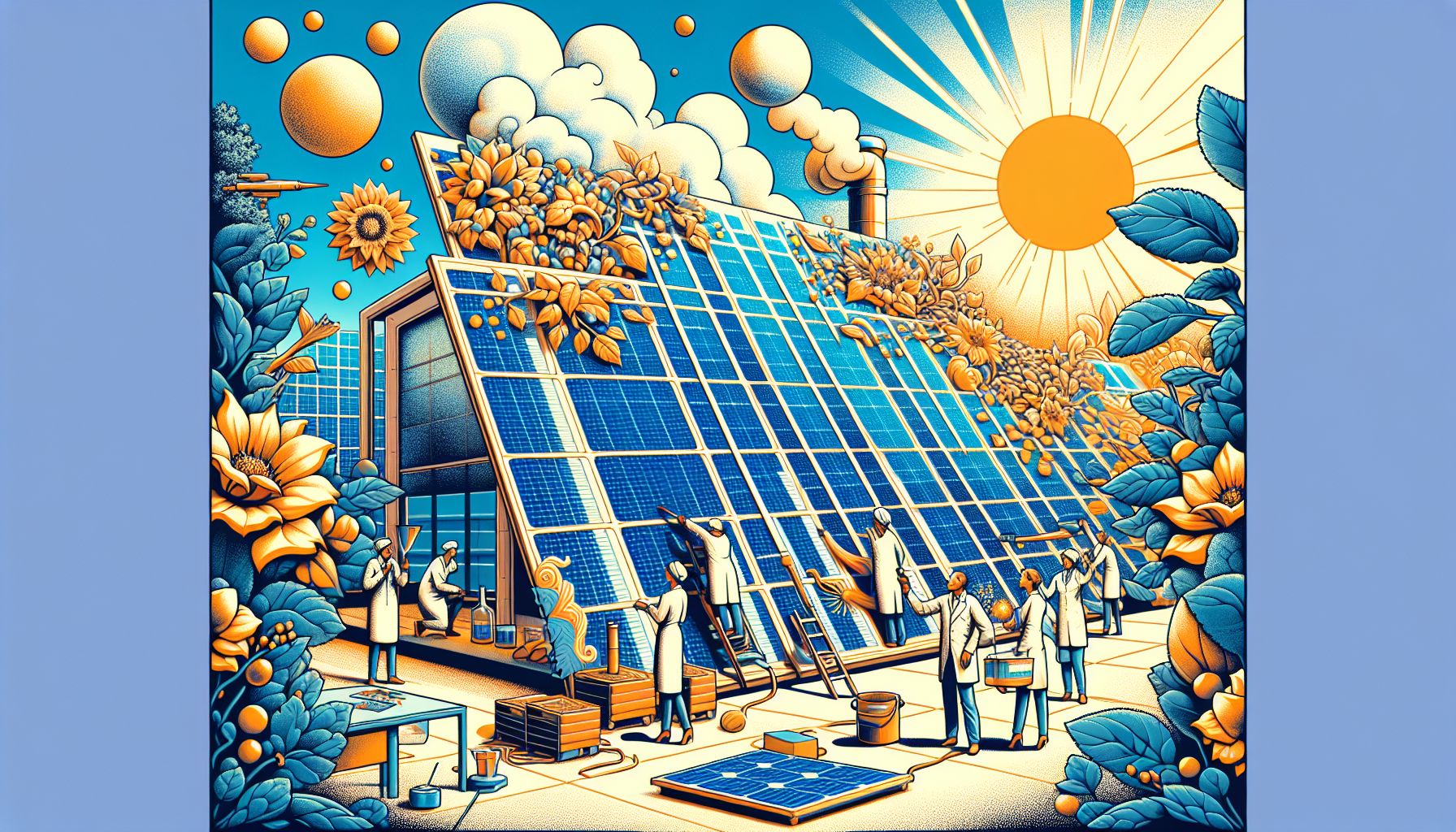Dutch Scientists Develop Organic Solar Panels with 20% Efficiency

Dutch researchers have created organic solar panels that achieve 20% efficiency, matching traditional silicon panels. This breakthrough could revolutionize the renewable energy market.
The Breakthrough
In a significant advancement for renewable energy, Dutch scientists have developed organic solar panels, also known as organic photovoltaics (OPVs), that achieve a remarkable 20% efficiency. This milestone puts these OPVs on par with many commercial silicon solar panels, which have long been the standard in the industry. The achievement, reported on 26 June 2024, marks a new record in the field of organic solar technology.
Advantages of Organic Solar Panels
Organic solar panels are made using carbon-based materials that convert light into electricity. Unlike traditional silicon panels, OPVs offer several key advantages: they are lightweight, flexible, and can be produced using cost-effective printing technologies. Additionally, their production process has a potentially lower environmental impact, making them an attractive option for sustainable energy solutions[1].
Previous Milestones
Earlier this year, scientists from Hong Kong achieved a 19.9% efficiency in OPVs, as published in Nature Communications[2]. This was a notable improvement over previous iterations, which only reached about half that efficiency a decade ago. The continuous advancements in efficiency highlight the rapid progress in the field of organic photovoltaics[3].
Market Potential and Applications
The flexibility and lightweight nature of organic solar panels open up a myriad of applications. They can be integrated into clothing, backpacks, and portable electronics, making them ideal for on-the-go energy solutions. Furthermore, their potential for use in flexible displays and as solar chargers for small devices adds to their versatility[1]. As these panels continue to improve in efficiency and durability, their market potential looks increasingly promising.
Challenges and Future Prospects
Despite these advancements, challenges remain in the widespread adoption of OPVs. Historically, organic solar panels have faced issues related to shorter lifespans and susceptibility to degradation from light, oxygen, and moisture. However, ongoing research aims to address these issues. For instance, recent studies utilizing machine learning and automated research platforms have made strides in understanding and improving the stability of organic solar cells[4].
Conclusion
The development of organic solar panels with 20% efficiency represents a significant leap forward in renewable energy technology. As researchers continue to overcome existing challenges, the future looks promising for OPVs to become a mainstream solution in the fight against climate change. This innovation not only aligns with global sustainability goals but also offers practical, versatile applications that could transform how we harness solar energy.

